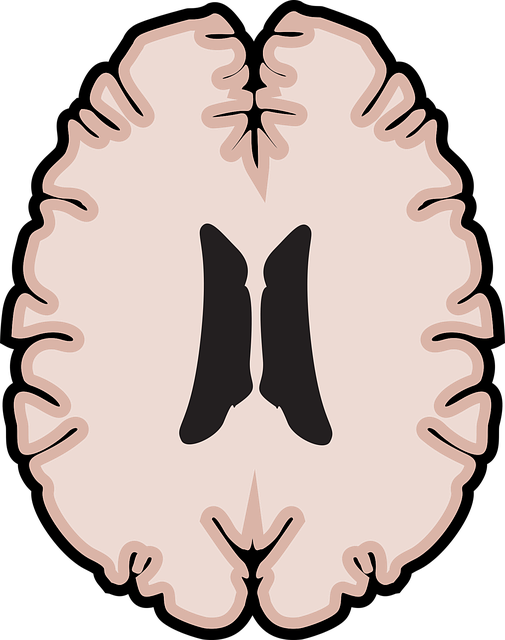Mental health data from structured clinical assessments at Westminster Psychosis Therapy and public health initiatives is essential for understanding community well-being. Clinical assessments provide detailed individual mental state insights, while public health data offers population-level information on risk factors and support system effectiveness. This collective data enables tailored interventions, such as Community Outreach Program Implementations, to address at-risk groups' unique needs. At Westminster Psychosis Therapy, data analysis is a core tool for delivering personalized treatment plans using advanced statistical methods and machine learning algorithms. By identifying patterns and trends, this approach enhances well-being, patient satisfaction, and long-term outcomes through evidence-based, crisis intervention strategies like mindfulness meditation.
Mental health data analysis is a powerful tool in understanding and improving patient outcomes, especially within the context of Westminster Psychosis Therapy. This article explores the critical process of collecting, analyzing, and interpreting mental health data to enhance therapeutic practices. We delve into various sources and techniques, from understanding data collection methods to employing advanced analysis tools. By examining patterns and trends, therapists can tailor their approach, ensuring more effective care for individuals navigating psychosis. Integrating these insights into Westminster Psychosis Therapy promises improved treatment strategies.
- Understanding Mental Health Data: Collection and Sources
- Data Analysis Techniques for Effective Therapy
- Interpreting Results: Identifying Patterns and Trends
- Integrating Findings into Westminster Psychosis Therapy Practice
Understanding Mental Health Data: Collection and Sources

Mental health data plays a pivotal role in understanding and improving psychological well-being within communities. Gathering this data involves various sources, each offering unique insights. Structured clinical assessments, conducted by professionals like those at Westminster Psychosis Therapy, are rich in information about individual mental states and diagnoses. These assessments often include standardized questionnaires and interviews designed to capture symptoms, severity, and treatment responses.
Beyond clinical settings, public health initiatives contribute valuable data through surveys and community outreach programs implemented by organizations offering Stress Management Workshops or similar interventions. Such initiatives gather population-level mental health data, shedding light on prevalent issues, risk factors, and the effectiveness of available support systems. This collective information is crucial for policymakers, researchers, and mental health professionals alike in navigating the complex landscape of community mental health needs, including identifying at-risk groups and tailoring interventions like Community Outreach Program Implementations.
Data Analysis Techniques for Effective Therapy

In the realm of Westminster psychosis therapy, data analysis plays a pivotal role in tailoring treatments to individual needs. Advanced techniques such as statistical modeling and machine learning algorithms enable therapists to identify patterns within patient data, facilitating more precise interventions. By employing these methods, mental health professionals can gain valuable insights into the complex interplay of symptoms, triggers, and treatment responses, thereby enhancing the effectiveness of therapy.
Empathy building strategies, integrated with robust data analysis, form a powerful combination for fostering emotional healing processes. Through meticulous interpretation of collected data, therapists can develop personalized Mental Wellness Coaching Programs that not only address current challenges but also equip individuals with long-lasting coping mechanisms. This approach ensures that care is both comprehensive and adaptive, aligning with the evolving needs of each patient.
Interpreting Results: Identifying Patterns and Trends

When analyzing mental health data, one of the critical steps is interpreting the results to identify patterns and trends that can provide valuable insights. This process involves sifting through collected information from various sources like surveys, clinical assessments, and electronic health records. By employing statistical methods and visualization techniques, researchers and healthcare professionals can uncover hidden correlations and anomalies. For instance, analyzing responses from a survey on mental well-being can reveal increased stress levels among specific demographics or identify common triggers for anxiety in a particular patient group, guiding tailored interventions such as Westminster Psychosis Therapy.
Understanding these patterns is crucial for developing effective strategies to enhance mental health, especially when considering the role of emotional intelligence and self-care routine development. Identifying trends related to crisis interventions can help refine guidance and support systems, ensuring that resources are allocated efficiently. For example, recognizing a spike in emergency room visits during certain seasons or after specific events could indicate a need for proactive measures, such as increased access to crisis intervention services, thereby improving overall mental health outcomes.
Integrating Findings into Westminster Psychosis Therapy Practice

Integrating findings from data analysis into Westminster Psychosis Therapy practice involves a strategic approach to enhancing patient care and outcomes. By leveraging insights gained through detailed mental health data, therapists can personalize treatment plans, targeting specific needs within the context of psychosis. This tailored approach leverages evidence-based techniques such as Crisis Intervention Guidance, which is crucial for addressing acute episodes, alongside resilience-building strategies like Mindfulness Meditation.
Effective integration ensures that the therapy practice not only manages symptoms but also fosters coping mechanisms and enhances overall well-being. The data-driven perspective enables therapists to monitor progress, adjust interventions promptly, and provide more effective support. This, in turn, contributes to improved patient satisfaction and better long-term outcomes for individuals navigating the complexities of psychosis within the Westminster Psychosis Therapy framework.
Mental health data analysis and interpretation are indispensable tools in enhancing Westminster Psychosis Therapy. By understanding diverse data sources, employing robust analytical techniques, and interpreting results with precision, therapists can identify patterns and trends that inform personalized treatment plans. Integrating these findings into clinical practice not only improves outcomes but also fosters a more adaptive and effective approach to mental health care.














